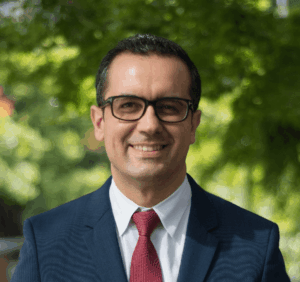Traumatic tooth loss can be a devastating experience that affects both your oral function and your confidence. Whether from a sports injury, car accident, or unexpected fall, suddenly losing one or more teeth creates immediate challenges that extend far beyond cosmetic concerns. The good news is that modern dentistry offers a solution that closely mimics natural teeth in both form and function: dental implants.
Unlike traditional tooth replacement options, dental implants address the full structure of missing teeth, helping patients regain their ability to eat, speak, and smile with confidence. At Seattle Dental Studio, we specialize in implant dentistry to help patients recover from traumatic tooth loss with long-lasting, functional results.
Understanding Traumatic Tooth Loss
Traumatic tooth loss occurs suddenly due to injury or accident rather than gradually through disease. Common causes include sports injuries without proper mouth protection, vehicle accidents, falls or other physical impacts, workplace accidents, and physical altercations.
The immediate aftermath of traumatic tooth loss often includes bleeding, pain, and potential damage to surrounding oral tissues. Beyond these immediate concerns, patients quickly notice functional impairments such as difficulty chewing certain foods, changes in speech patterns, shifting of adjacent teeth, loss of jawbone volume over time, and alterations in facial appearance.
How Dental Implants Work
Dental implants function as artificial tooth roots, providing a strong foundation for replacement teeth. The implant itself is a titanium post surgically placed into the jawbone where it integrates with natural bone tissue through a process called osseointegration. This creates a stable base that supports a custom-made crown, bridge, or denture.
The three main components of a dental implant restoration include the implant fixture (titanium post that integrates with the jawbone), the abutment (connector that attaches to the implant and supports the restoration), and the prosthetic tooth or teeth (custom-made to match your natural teeth). Unlike other tooth replacement options, implants stimulate the jawbone similar to natural tooth roots, preventing the bone loss that typically follows tooth loss.
Functional Benefits of Dental Implants After Trauma
Dental implants offer several important functional advantages for patients who have experienced traumatic tooth loss. These benefits help restore normal oral function and prevent complications that often follow tooth loss.
Restored Chewing Ability
One of the most immediate functional improvements patients notice with dental implants is the return of normal chewing ability. Unlike removable dentures, which may slip or cause discomfort when eating, implants function just like natural teeth, allowing you to enjoy foods of all textures without restriction.
The stable foundation provided by implants means you can generate nearly the same biting force as with natural teeth. This allows you to maintain a varied, nutritious diet without having to avoid certain foods, a significant quality of life improvement after traumatic tooth loss.
Preserved Speech Patterns
Teeth play a crucial role in articulation and speech. When teeth are lost, especially in the front of the mouth, pronunciation of certain sounds becomes difficult. Traditional dentures can sometimes compound these issues by shifting during speech.
Dental implants eliminate these concerns by remaining permanently fixed in place, allowing for clear, confident speech without the worry of dentures moving or clicking. For professionals who rely on verbal communication, this benefit can be particularly important after experiencing traumatic tooth loss.
Prevention of Bone Loss
One of the most significant long-term functional benefits of dental implants is the prevention of jawbone deterioration. When teeth are lost, the jawbone naturally begins to resorb (shrink) due to a lack of stimulation previously provided by tooth roots.
Dental implants are the only tooth replacement option that stimulates the jawbone in a way similar to natural teeth. This stimulation preserves bone volume and density, maintaining facial structure and preventing the “sunken” appearance that often accompanies long-term tooth loss.
The Dental Implant Process After Trauma
In some traumatic tooth loss cases, dental implants may be placed immediately after tooth extraction, particularly when the bone structure remains intact. However, in many trauma cases, a healing period is necessary before implant placement, especially if there’s damage to the jawbone or surrounding tissues.
The typical dental implant process after traumatic tooth loss includes initial evaluation with comprehensive 3D imaging, treatment planning, any necessary preliminary procedures (extractions, bone grafting, or soft tissue augmentation), implant placement, a healing period of 3-6 months for osseointegration, abutment placement, and finally, placement of the custom restoration.
Throughout this process, your dentist may provide temporary tooth replacements to maintain appearance during the healing period. With proper care—including regular brushing and flossing, professional cleanings every 6 months, and periodic evaluation—dental implants can last a lifetime.
Choosing the Right Provider for Implant Restoration
When seeking treatment for traumatic tooth loss, selecting an experienced implant provider is crucial. Look for a dentist who has specific training and experience in implant dentistry, can show examples of similar cases they’ve treated, offers comprehensive care from extraction to final restoration, and makes you feel comfortable and understood throughout the process.
Dr. Dbouk at Seattle Dental Studio brings extensive experience in implant dentistry and trauma management, offering patients comprehensive care from initial assessment through final restoration. If you’ve experienced traumatic tooth loss, don’t let it compromise your oral function and quality of life. For more information about dental implants or to schedule a consultation, contact Seattle Dental Studio at (206) 467-8302 or through our contact form.


